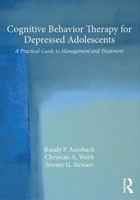
Christian A. Webb, PhD
Director, Treatment and Etiology of Depression in Youth (TEDY) Laboratory
- Associate Professor of Psychology, Department of Psychiatry
Biography
Christian A. Webb, PhD, is an associate professor of psychology in the Department of Psychiatry at Harvard Medical School and director of the Treatment and Etiology of Depression in Youth (TEDY) Laboratory at McLean Hospital. He received his PhD in clinical psychology from the University of Pennsylvania, under the mentorship of Robert J. DeRubeis, PhD, and completed both his pre-doctoral clinical psychology internship and a NIMH Individual National Research Service Award (NRSA) post-doctoral fellowship at Harvard Medical School and McLean Hospital.
Dr. Webb has received several early career awards for his work on the treatment of depression, including from the American Psychological Association, American Psychological Foundation, and the Association for Behavioral and Cognitive Therapies.
Dr. Webb’s Treatment and Etiology of Depression in Youth (TEDY) Laboratory uses a multimodal approach (EEG, fMRI, ecological momentary assessment, passive smartphone sensor data, and laboratory-based experiments) to investigate the causes of depression in adolescents, as well as the mechanisms of change in psychotherapeutic and smartphone-delivered interventions for depression.
Within these areas of focus, Dr. Webb and his staff study the mechanisms underlying symptom change in depression interventions.
There is a large body of treatment outcome research attesting to the efficacy of psychotherapies, in particular, cognitive-behavioral approaches. However, the mechanisms through which patients improve—and why many fail to sufficiently improve—remain largely unknown, particularly for the treatment of depression in youth. A clearer understanding of the “active ingredients” of treatment and underlying mechanisms of symptom change may ultimately inform the development of more targeted—and ideally more effective and efficient—interventions for depression.
Dr. Webb’s lab conducts this research in the context of clinical trials of CBT, behavioral activation (BA), and smartphone-delivered interventions. Within these studies, Dr. Webb and his colleagues have examined the role of therapist adherence to, and competence in, cognitive-behavioral techniques in predicting symptom improvement. In addition, they have examined the role of patient acquisition and use of various cognitive and behavioral skills, as well as the therapist-patient relationship.
Dr. Webb’s lab also focuses on predicting treatment response in depression. Greater knowledge of variables predicting better or worse treatment response prior to the start of treatment may have important clinical implications regarding which interventions are best suited for whom, thus informing treatment selection.
To date, we have strikingly little empirical data to usefully guide the selection of treatments for depressed individuals. In current clinical practice, treatment selection for depressed individuals is largely based on trial and error and clinician/patient preference. Rates of non-response to first-line depression treatment in primary care are high (~50-70%), resulting in protracted depressive episodes until an adequate treatment is found.
Consistent with the goals of precision medicine, Dr. Webb’s most recent work is aimed at developing actionable, algorithm-guided treatment recommendations to improve outcomes for depressed individuals by matching them to the optimal intervention. He is currently conducting this research within the context of randomized clinical trials and within real-world psychiatric clinics.
In parallel with his treatment research, Dr. Webb also investigates the etiology of depression. Depression rates are low in childhood but surge in adolescence. By age 18, approximately 15% of teens will have experienced at least one episode of clinical depression. A clearer understanding of factors that cause and maintain depressive symptoms in adolescents can ultimately help inform and improve interventions aimed at treating and preventing depression in this age group.
- Hannah Lawrence, PhD, Research Fellow
- Laura Murray, PhD, Research Fellow
- Brianna Pastro, Clinical Research Assistant
- Randy P. Auerbach, PhD, ABPP, Columbia University
- Jacques P. Barber, PhD, Adelphi University
- Courtney Beard, PhD, McLean Hospital
- Thröstur Björgvinsson, PhD, ABPP, McLean Hospital
- Robert J. DeRubeis, PhD, University of Pennsylvania
- Zachary Cohen, UCLA
- Daniel G. Dillon, PhD, McLean Hospital
- Jay C. Fournier, PhD, University of Pittsburgh
- Lori Hilt, PhD, Lawrence University
- Diego A. Pizzagalli, PhD, McLean Hospital
- Scott L. Rauch, MD, McLean Hospital
- Madhukar H. Trivedi, MD, University of Texas Southwestern Medical Center
- Alexis Whitton, PhD, University of Sydney
Webb CA, Swords C, Lawrence H, Hilt L. Which adolescents are well-suited to app-based mindfulness training? A randomized clinical trial and data-driven approach for personalized recommendations. Journal of Consulting & Clinical Psychology. 2022;90(9),655-669.
Webb C.A, Murray L, Tierney A, Forbes EE, Pizzagalli DA. Reward-related predictors of symptom change in behavioral activation therapy for anhedonic adolescents: A multimodal approach. Neuropsychopharmacology. 2022;48(4):623-632.
Ren B, Balkind EG, Pastro B, Israel ES, Pizzagalli DA, Rahimi-Eichi H, Baker JT, Webb CA. Predicting states of elevated negative affect in adolescents from smartphone sensors: a novel personalized machine learning approach. Psychological Medicine. 2022;1-9.
Books

Cognitive Behavior Therapy for Depressed Adolescents: A Practical Guide to Management and Treatment
by Randy P. Auerbach, Christian A. Webb, Jeremy G. Stewart
(Routledge Taylor & Francis Group, 2016)
Education & Training
- 2005 BA, McGill University
- 2008 MA, University of Pennsylvania
- 2012 PhD, University of Pennsylvania
- 2011-2012 Clinical Psychology Internship, McLean Hospital/Harvard Medical School
- 2012-2015 NIMH Individual National Research Service Award (NRSA) Post-Doctoral Fellowship, McLean Hospital/Harvard Medical School



